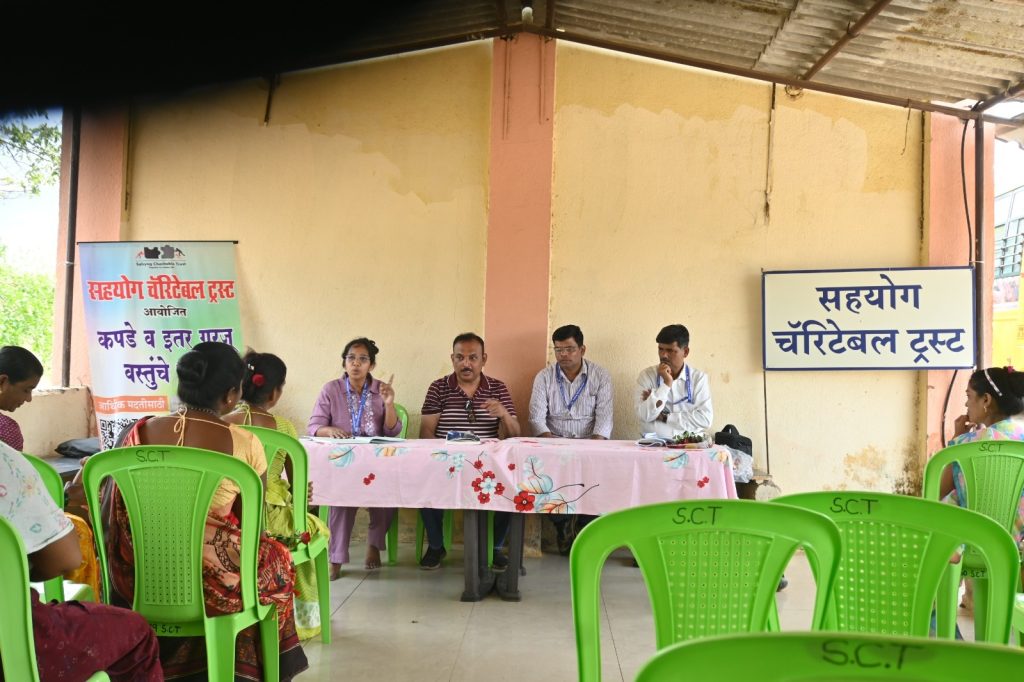In our complex and often chaotic world, the act of giving—whether it be time, money, or resources—plays a vital role in addressing social issues and fostering goodwill. Charity work is not only a noble endeavor but also a reflection of our shared humanity. Yet, despite the many benefits of charitable acts, many people still hesitate to participate. This comprehensive exploration not only delves into the myriad reasons we should donate and engage in charity work but also provides insights on how these actions can bring about meaningful changes in our lives and the lives of others.

1. Making a Difference in the Lives of Others
At its core, charity work is about making a positive impact. Donating money to feed the hungry, volunteering at a local shelter, or tutoring underprivileged children can dramatically change lives. For instance, consider food banks that rely on donations and volunteers to provide meals for those in need. Each can of food we give or hour we spend cooking meals can provide relief and comfort to someone struggling to make ends meet.
When you think about the direct consequences of your charitable actions, the picture becomes even more significant. Your donation could mean that a child has access to a nutritional meal that supports their growth and academic performance, or that a single parent can find a safe place to sleep for a night. Knowing that you have actively contributed to alleviating someone’s hardship fosters a deep sense of fulfillment and connects you to the larger human ecosystem.

2. Building Stronger Communities
Charitable efforts often promote community cohesion and strengthen social bonds. When individuals come together for a common cause, they unite in purpose and action. Whether it’s organizing a local clean-up, creating a mentorship program, or raising funds for disaster relief, community involvement fosters a sense of belonging.
Community involvement strengthens the fabric of society. Friends, neighbors, and even strangers unite to tackle issues. This collective effort builds resilience, providing communities with the strength to face challenges together. When we work on community initiatives, we foster trust and understanding, paving the way for collaboration in other areas of life.
Moreover, community engagement through charity can lead to innovative solutions as diverse perspectives come together. For example, local nonprofits often devise grassroots solutions based on grassroots needs, resulting in programs that better serve their unique populations.

3. Cultivating Empathy and Compassion
Engaging in charity work exposes us to different life experiences, enabling us to develop empathy and compassion. When we volunteer in shelters, food banks, or community centers, we learn first-hand about the struggles that others face. These encounters challenge our preconceived notions and stereotypes, allowing us to see the humanity in every individual.
Empathy is a cornerstone of societal change. When we understand others’ struggles, we become more inclined to advocate for policy changes, support social justice movements, and contribute to systemic solutions rather than simply temporary fixes. The ripple effect of empathy can transform entire communities as more individuals become involved in supporting causes that they may have previously overlooked.
4. Personal Growth and Development
Charity work often serves as an excellent catalyst for personal growth. Engaging in volunteer activities can help us acquire new skills, enhance existing ones, and foster personal insight. For example, volunteering at a nonprofit can develop skills like project management, communication, teamwork, and even budgeting—all of which are invaluable in both personal and professional settings.
Additionally, charity work often encourages individuals to confront their beliefs and values. As we engage with diverse populations, we may find ourselves re-evaluating our priorities and understanding. Perhaps our experiences will cultivate more tolerance and open-mindedness, or maybe they will inspire us to commit to lifelong learning.
Volunteering can also grant us opportunities to take on leadership roles. Planning events, leading teams, or advocating for causes provides real-life experiences that teach resilience, adaptability, and decision-making. Such experiences not only build our resumes but can also enhance our self-esteem and confidence.

5. Boosting Mental and Physical Health
Research has consistently shown that charitable acts have a positive correlation with mental and physical health. Engaging in charity can reduce stress, curb anxiety, and even diminish symptoms of depression. The “helper’s high” is a well-documented phenomenon—when we give to others, our brain releases endorphins and other feel-good chemicals. The rewarding feeling of helping others can lead to a more positive outlook on life and improved emotional well-being.
Moreover, volunteering often requires physical activity, helping us maintain a more active and healthier lifestyle. Ask anyone who regularly volunteers at a local community garden, and they’ll tell you about the benefits of fresh air, exercise, and social interaction. In this way, charitable work supports not just the physical health of the community but also contributes positively to our own health.
6. Setting an Example for Future Generations
Engaging in charitable work sets a powerful example for children and youth. When young people witness their parents or mentors actively supporting their community—whether through donations or volunteering—they learn the importance of giving back. This influence can nurture a spirit of altruism that children carry into adulthood.
Teaching kids about the value of community service, compassion, and social responsibility can equip them to be active, responsible citizens. When young people are given opportunities to volunteer or engage in charity, they learn valuable life lessons about empathy and the impact of their actions. Hopefully, they will grow up understanding that giving is not just a responsibility but also a privilege and joy.
Additionally, instilling these values early on can help combat growing feelings of apathy or individualism often seen in contemporary society. As the younger generations engage in charity work, they will foster a culture of kindness and generosity that uplifts society as a whole.

7. Creating a Lasting Legacy
Charitable contributions can create changes that resonate far beyond our own lifetimes. By donating to causes aligned with our values or volunteering our time, we can help establish foundations for future generations. For example, a donation made to a scholarship fund can empower students to achieve their educational aspirations long after you’re no longer able to contribute.
Further still, the impact of charitable acts often inspires others to give or become involved, creating a ripple effect. This cycle of generosity can foster a more compassionate and charitable society overall, where giving is not sporadic but rather a fundamental aspect of the community’s identity.
A legacy of charity can manifest in various forms, whether it’s funding research for medical advancements, supporting the arts, or contributing to environmental conservation efforts. The projects we support may inspire additional initiatives and movements, leading to progressive changes in society.
8. A Spiritual and Philosophical Pursuit
For many, charity work transcends mere acts of kindness; it carries a profound spiritual significance. Engaging in altruism aligns with many philosophical and religious teachings that emphasize compassion, service to others, and the moral imperative to help those in need.
For example, many religious traditions teach the importance of giving—whether through tithes, donations, or volunteer work—as a pathway to spiritual fulfillment. This perspective enhances the meaning of charitable work and connects individuals to a broader purpose, reinforcing the notion that we are all part of a shared experience.
Embracing this spiritual perspective may motivate individuals to seek out opportunities to contribute to causes they care about even more fervently. This quest for purpose can enhance our lives in extraordinary ways, allowing us to cultivate a sense of connection to a cause greater than ourselves.

9. Harnessing the Power of Networks and Resources
Charity work often opens doors to new networks and resources that can aid in furthering your goals and ambitions. Engaging in philanthropic activities can connect you with like-minded individuals who share your passions, potentially leading to collaboration, mentorship, or even new career opportunities.
In addition, charitable organizations often have access to resources that can empower not only their beneficiaries but also the volunteers and donors involved. From workshops to training sessions, participating in charity work can offer invaluable skills and information, creating a symbiotic relationship where both the giver and receiver benefit.
Through these connections, we can expand our horizons and gain access to a world of opportunities. The relationships formed through charity work often become a source of support, guidance, and inspiration throughout our lives.

10. Leveraging Digital Platforms for Greater Impact
In today’s digital age, the opportunities for charitable engagement have multiplied exponentially. Online platforms allow individuals to donate more easily, and social media can amplify causes to global audiences. Crowdfunding campaigns, virtual volunteering, and online donations make it increasingly simple for individuals to contribute to save their time and resources.
Digital initiatives also encourage individuals to raise awareness for the causes that matter to them most, fostering a sense of community among supporters from various backgrounds. Social media trends and viral campaigns can mobilize efforts faster than traditional methods, creating significant impacts in shorter time frames.
This digitization can bridge continents and connect diverse communities. Individuals who may have previously felt limited by their geography can join global movements for change, advocating for issues such as climate change, human rights, or poverty alleviation.

Donating time, money, or resources and engaging in charity work is crucial to fostering a caring and compassionate society. The reasons to participate are diverse and complex, extending from immediate benefits to local communities to far-reaching impacts across the globe. The act of giving allows us to make a profound difference in the lives of others, build stronger communities, cultivate empathy, boost our well-being, and create a lasting legacy.
As individuals, we have the power to influence change, and engaging in charitable work is one of the most effective ways to do so. By investing in the well-being of others, we enrich our lives and foster hope for a better future.
So, as you reflect on your role in the world, consider how you can contribute—however big or small—to make a difference. Whether it’s volunteering at a local nonprofit, donating to a cause you believe in, or simply spreading awareness, your actions can inspire others and create a ripple effect of kindness and generosity. Let’s embrace the opportunity to give back, for in doing so, we not only uplift others but also enhance the quality of our own lives and unify our world in compassion and understanding.
